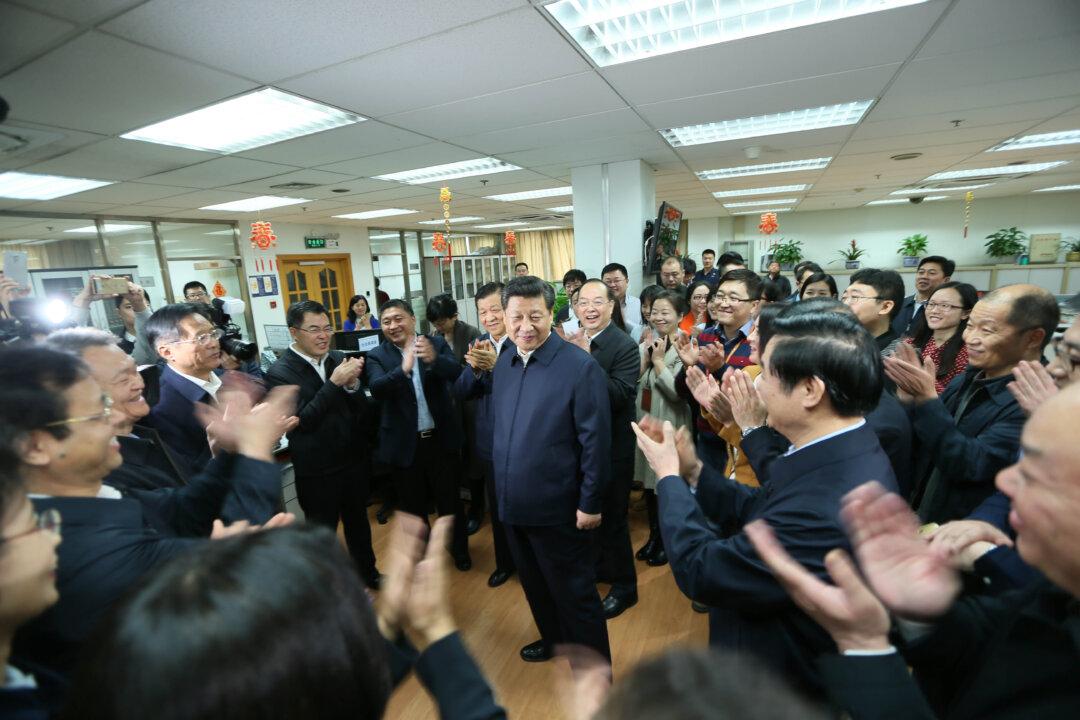In the main studio of flagship broadcaster China Central Television, Chinese leader Xi Jinping tried a little newsreading. A beaming news anchor stands to the right of the Party leader in a picture circulated on the Chinese Internet. To his left looms propaganda chief Liu Yunshan, his expression dour.

Screenshot via Sina Weibo




